In this moment of racial awakening and anguish, the question on many minds is: “What can I do?”
For 19 Black and brown business leaders in Boston, it was the question, too. They felt compelled to respond, and they’ve come up with a big idea: the creation of the New Commonwealth Racial Equity and Social Justice Fund.
If this sounds familiar, think again. Sure, Boston Mayor Marty Walsh launched the city’s version of a racial equity fund last week as his staff scrambled to find people of color to serve on the steering committee.
But if members of our white power establishment were really woke, they probably would have had the sense to stand off to the side and let Black and brown leaders, you know, lead.
The one to watch is the New Commonwealth effort conceived by these Black and brown executives, who are using their own money and tapping networks they’ve assiduously cultivated over the years as they worked their way up the ranks of a predominantly white corporate Boston.
In doing so, these executives hope to not only spark a movement in Boston but to serve as a national model on how executives of color can lead on eliminating racial inequities.
In just three weeks, the group has seeded their fund with about $20 million in commitments, primarily from companies where these executives work. With this robust start, the group has set an ambitious goal of raising at least $100 million, and expects to begin issuing grants in a few months to organizations working on racial equity and social justice matters.
“So many people have asked: ‘What can I do? How can we make real change?‘ ” said Eastern Bank president Quincy Miller. “This is one of the ways we believe we can truly be revolutionary.”
Miller and the other executives say philanthropic and corporate giving, despite good intentions, has largely failed at fixing racial inequities and, importantly, has chronically underfunded Black- and brown-led nonprofits compared to white-led counterparts. These executives want to drive a sea change in how money is doled out and make the work less about charity and more about creating systemic change.
“If we can prove that by putting these resources in the hands of people who are closest to the problems, and we empower them … that’s the difference,” said Paul Francisco, chief diversity officer at State Street. “It’s the realization that attitudes need to change to say, ‘We are not the saviors, but are the partners.’ ”
The ability for this group to bring in so much money in so little time reflects the growing power and ranks of Black leaders across the Boston business community. While the overall number of Black and brown executives remains small, they are on the ascent.
Among those involved in the fund are: Rapid7 CEO Corey Thomas, General Electric global government affairs president Mo Cowan, Thermo Fisher Scientific life sciences and laboratory products president Fred Lowery, Fidelity Investments senior vice president Pamela Everhart, Bain Capital managing director Greg Shell, DentaQuest Partnership for Oral Health Advancement CEO Myechia Minter-Jordan, Berkshire Bank regional president Malia Lazu, Boston Scientific general counsel Desiree Ralls Morrison, Blue Cross Blue Shield of Massachusetts chief legal officer Stephanie Lovell, Vertex Pharmaceuticals chief risk and compliance officer Damian Wilmot, and Suffolk construction vice president Linda Dorcena Forry.
“What is incredibly exciting about the effort being developed by Black executives in Massachusetts is that for the first time we are seeing the collective power both financially and operationally of Black dollars being invested into the racial justice movement,” said Tanisha Sullivan, president of the Boston chapter of the NAACP.
Kirk Sykes, whose career as a developer and investment manager has spanned four decades in Boston, often as the only Black executive in the room, said this is a moment of real change in race relations, especially in Corporate America.
“What this group is doing is protesting with their wallets,” said Sykes, co-managing director of development firm Accordia Partners, and who is not part of the group. “There is an alignment between our national upheaval and uproar, and the empowerment of the local corporate community getting behind it.”
The group’s first Zoom call took place on June 7, two weeks after George Floyd was killed by a white police officer in Minneapolis who kept his knee pressed on the Black man’s neck until he stopped breathing. The death, captured on cellphone video, ignited protests across the country and a reckoning on race. For many of these executives, despite their success, they too continue to face discrimination because of the color of their skin.
Ten people were on that first call, including Cowan, Everhart, Francisco, Lowery, Miller, and Wilmot. Some knew each other well, others just by reputation. But there was a shared sense of responsibility and the recognition that they could leverage their power.
“When we stepped back and looked at the influence of this group, we really knew we had the answer,” said Miller of Eastern Bank. “Let’s unite together, not only in our own financial support, but the support of our companies.”
During that first call, the group quickly rallied around the idea of a fund driven by Black and brown corporate executives for Black and brown communities. They wanted their fund to help nonprofits across the state from Boston to Brockton to Springfield. The executives would press their respective companies to provide multi-year financial commitments.
The group has since grown to 19 core members, and they plan to bring in allies of all colors.
The fund will initially focus on investing in initiatives and nonprofit organizations that support communities of color on policing and criminal justice reform, health care equity, economic empowerment, and youth education and engagement.
The fund will also give priority to nonprofits led by Black and brown leaders, to counteract what is known as “philanthropic redlining.”
One recent study, coauthored by nonprofit consultant Bridgespan Group, indicated that on average the revenues of Black-led nonprofits are 24 percent smaller than those revenues of white-led counterparts, and the unrestricted net assets of the Black-led organizations are 76 percent smaller than their white-led counterparts.
Nurys Camargo, who founded Chica Project nine years ago, said her Boston nonprofit that mentors and coaches young women of color recently received its biggest grant of $50,000, which came from a Florida foundation.
Camargo said Black and brown-led nonprofits have trouble accessing capital because the predominantly white network of funders doesn’t want to take a risk on organizations led by people of color.
“People fund people,” said Camargo. “They have the folks they usually fund.”
That’s the cycle the Black executive group hopes to break. Instead of feeling an unease with Black and brown nonprofit leaders, these executives see their lived experiences as critical to finding the right solutions to reversing systemic racism.
“There is something about cultural competency, a shared story and narrative,” said Minter-Jordan, CEO of DentaQuest Partnership and its Catalyst Institute. “It allows people of color to represent the needs of people of color.”
Segun Idowu, executive director of the Black Economic Council of Massachusetts, is eager to work with the New Commonwealth group, because, in his view, they get it. BECMA recently issued a challenge to the business community to commit up to $1 billion to a fund to address racial inequities over the next decade.
“We know the way to liberation,” said Idowu. “It’s time to reset how we’re investing in our communities.”

